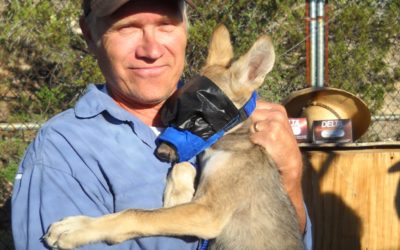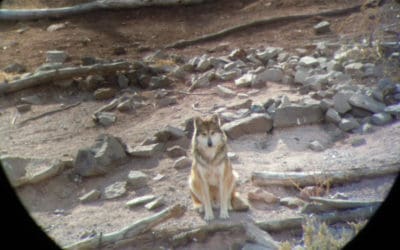OUR STORY
OUR STORY
Every year tens of thousands of species and functional ecosystems, fine-tuned by time and place, disappear.
If these trends continue, the world will become a dismal place indeed, with silent springs and little left to excite the senses except the weeds. Without doubt, the extinction crisis looms as one of humanity’s most pressing problems.
In response to this crisis, Ted Turner, his family, and Mike Phillips established the Turner Endangered Species Fund (TESF) and Turner Biodiversity Divisions (TBD) in June 1997. TESF focuses on species protected under federal and state endangered species laws, whereas TBD considers species that are at slightly less risk. These companion efforts are dedicated to saving biological diversity by ensuring the persistence of imperiled species and their habitats with an emphasis on private land.
We work closely with our partner organizations, Turner Enterprises, Inc. and the Turner Foundation, and invite collaboration with state and federal agencies, universities, and other private organizations.
Whether managing an extant population or restoring an extirpated one, our goal is population persistence with little or no human intervention. We believe that persistent populations of native species are indicative of a healthy landscape and a high degree of ecosystem integrity.
The problems involved in private stewardship are complex and effective solutions require broad-based sociopolitical, biological, geographical, and fiscal considerations. Though our projects may be controversial, slow to succeed or fraught with uncertainty, we intend to stand as a real solution to the extinction crisis.
NEWSROOM
Fieldwork indicates that everything is going as planned with the historic release of the Mexican wolves at the Ladder Ranch.
Wolves have visited the supplemental food caches that we established along with tubs of water with recent rains providing additional water. Both adults are out of the pen and restricting movements to the immediate area and at least two of the six pups have been...
Mike Phillips named as the 2021 recipient of The Wildlife Society’s Aldo Leopold Memorial Award.
The Aldo Leopold Memorial Award is the highest honor bestowed by The Wildlife Society. Given Mike’s deep connection to TESF over the last 24 years, the award is yet another example that the organization operates at the highest level of fish and wildlife conservation...
History has been made !!!
For the first time ever, Mexican wolves have been released on private land in the U.S., Ted Turner’s Ladder Ranch, to advance recovery of the species. The ranch offers an abundance of secure and high quality habitat and easy access to the vast public wildlands of the...
Every year tens of thousands of species and functional ecosystems, fine-tuned by time and place, disappear.
If these trends continue, the world will become a dismal place indeed, with silent springs and little left to excite the senses except the weeds. Without doubt, the extinction crisis looms as one of humanity’s most pressing problems.
In response to this crisis, Ted Turner, his family, and Mike Phillips established the Turner Endangered Species Fund (TESF) and Turner Biodiversity Divisions (TBD) in June 1997. TESF focuses on species protected under federal and state endangered species laws, whereas TBD considers species that are at slightly less risk. These companion efforts are dedicated to saving biological diversity by ensuring the persistence of imperiled species and their habitats with an emphasis on private land.
We work closely with our partner organizations, Turner Enterprises, Inc. and the Turner Foundation, and invite collaboration with state and federal agencies, universities, and other private organizations.
Whether managing an extant population or restoring an extirpated one, our goal is population persistence with little or no human intervention. We believe that persistent populations of native species are indicative of a healthy landscape and a high degree of ecosystem integrity.
The problems involved in private stewardship are complex and effective solutions require broad-based sociopolitical, biological, geographical, and fiscal considerations. Though our projects may be controversial, slow to succeed or fraught with uncertainty, we intend to stand as a real solution to the extinction crisis.



